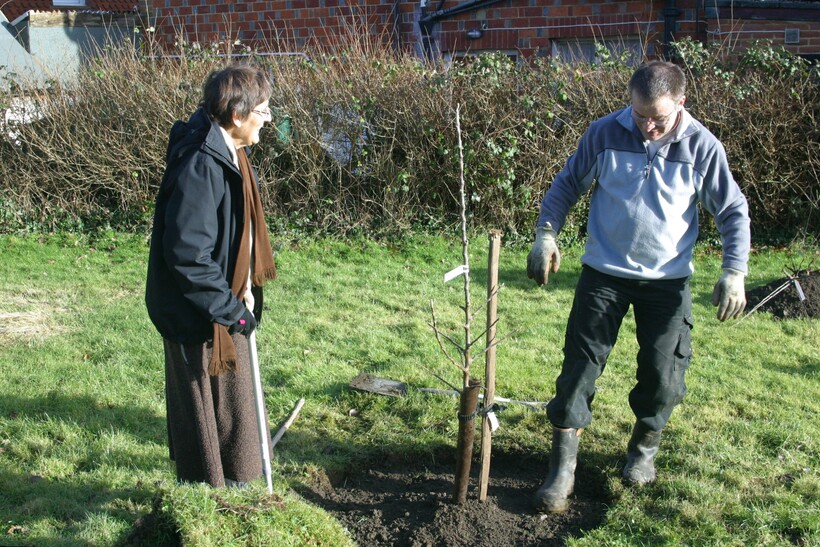Capel Quaker Orchard
In April 2012, keen to demonstrate support for the Canterbury Commitment for Quakers to become a sustainable community, Capel Local Meeting organised a 'sustainability day' in the village. 'Capel goes green' and other 'green' groups in the area were invited, including members of Dorking community orchard project. During the day, the idea was born of using the large area of unused land in the grounds of Capel Meeting House to plant a community orchard.

Capel Meeting has always had a very good relationship with the local Anglican Church and other village residents, and they were keen to support the project.
Challenges arise
Unfortunately, problems arose when the idea was submitted to our area meeting. It was established that the land was freehold and whilst the Charity Commission were happy with the change of use, some were not happy with the idea of a community orchard. There was some concern about health and safety and insurance cover if non-members of the Meeting worked on the premises.
After two years of negotiation it was agreed that a separate small group of Quakers should take complete responsibility for the orchard. This group consists of three Quakers from Capel and two from Dorking. Finally, on a beautiful winter's day in January 2015 the trees were planted. Some fifteen people, half of them Quakers and half Anglicans, enjoyed a communal lunch together and then carefully planted the ten dwarf trees. The orchard will be maintained by organic methods.
Building our community
It is agreed that when the trees eventually fruit the produce will be shared between all those involved in the project. Any surplus we expect can be sold at the local shop, which already takes produce from Capel villagers' gardens and allotments. Also a local undertaking collects fallen fruit and turns it into juice, again sold locally. We now look forward to the first blossom when we will meet together with the church members to celebrate the progress.
We are delighted that the project is both strengthening the village community and, assuming our trees bear fruit, will make a contribution to local sustainability